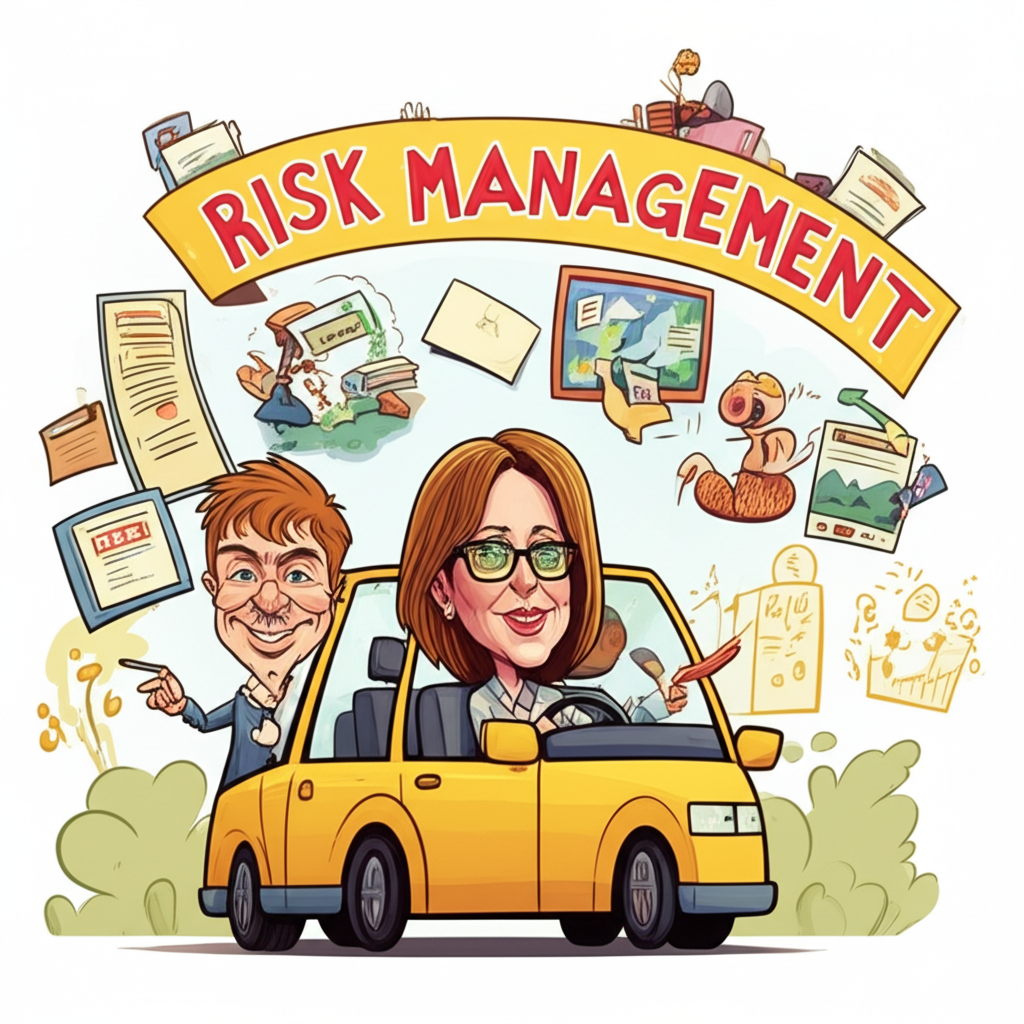
Here are a few humorous and satirical articles about how to save money, designed to be informative (in their own twisted way) but lighthearted and entertaining.
The Frugal Fables Gazette
Issue #7 – The "Why Are You Still Buying Things?" Edition
Article 1: The Art of Existential Frugality: Living Your Best (Cheapest) Life
By Dr. Sterling McPinch, PhD (Poverty Habits & Deductive Austerity)
Are you tired of financial advisors telling you to "cut back on lattes"? Pffft. That’s beginner stuff. We’re here to talk about real saving. The kind that makes your friends wonder if you’ve joined a monastic order or simply forgotten how money works. Welcome to Existential Frugality – where every penny saved is a tiny victory over the crushing weight of consumerism, and possibly, personal hygiene.
1. The "Water is Free" Diet:
Forget meal prepping. Forget grocery shopping. Your primary food source is now tap water. It’s hydrating, it’s calorie-free (a bonus for your waistline and wallet), and it’s virtually limitless. For flavor, try visualizing a delicious meal while you sip. For nutrients, remember that humans once survived on very little. You’re just… honouring your ancestors. If you must eat, consider befriending a baker right before closing time. "Crusts, good sir? Any unwanted crumbs?" Humility is cheap.
2. The Commute Conundrum: Embrace the Inner Tortoise:
Public transport? Taxis? Even walking shoes are an expense. Your new mode of transport is the "Strategic Shuffle." Plan your life around your home’s immediate vicinity. Work is now your home office (even if it’s a cardboard box in the park). Social gatherings? Host them. In your cardboard box. Friends won’t come? Excellent! More money saved on socializing. If you absolutely must travel, consider the art of "interpretive dance" through busy intersections – people will clear a path, and it’s technically free entertainment for onlookers.
3. Entertainment: The Thrill of Nothingness:
Netflix? Spotify? Books? These are capitalist traps designed to siphon your hard-earned (or, in your case, hard-saved) cash. Your entertainment now consists of:
- Cloud Gazing: Discover shapes, contemplate the vastness of the universe. It’s surprisingly profound and costs precisely zero.
- Dust Bunny Herding: A surprisingly engaging activity. See how many you can collect before they become a sentient organism.
- Staring at Walls: Observe the subtle nuances of paint, the way the light hits the plaster. It’s like meditation, but without the expensive yoga mat.
- Listening to Your Own Thoughts: Prepare for a wild ride. You’ll be amazed at what your brain comes up with when it’s not distracted by high-definition streaming.
4. The Social Sacrifice: Friends are Expensive.
Dinners out? Birthday gifts? Even a friendly coffee can derail your financial nirvana. The solution: become a recluse. Your true friends will understand. Or they won’t, which is also fine because then you don’t have to buy them anything. If social interaction is unavoidable, suggest activities that involve no money whatsoever: competitive staring contests, synchronized breathing, or the ever-popular "silent contemplation of shared existence." Bonus points if you can convince them to bring their own snacks.
The Bottom Line:
Existential Frugality isn’t just about saving money; it’s about redefining wealth. Is wealth a fat bank account, or is it the profound freedom that comes from needing absolutely nothing? (Hint: It’s the latter, because needing things costs money). You’ll be thin, well-hydrated, and utterly bewildered by the consumerist madness around you. Enjoy your new, incredibly cheap, and slightly awkward life!
Article 2: De-Marie Kondo Your Wallet: The Joy of Accumulating Unnecessary Pennies
By Ms. Penny Pinchworth, Certified Financial Minimalism Opponent
Marie Kondo told you to discard anything that doesn’t "spark joy." Well, I’m here to tell you that she’s a menace to your financial future! Your wallet should be a repository of everything, especially the things that don’t spark joy but do represent a tiny, minuscule fraction of a penny you didn’t spend. Welcome to the wonderful world of anti-minimalist saving!
1. The "Every Coin is a Sacred Relic" Doctrine:
That lonely penny you found on the sidewalk? Don’t leave it! It’s an orphan, a tiny copper warrior, a future fractional investment in a single grain of rice! Scoop it up. Your purse should jingle like a medieval knight in full armour. Those tiny coins add up. Eventually. Maybe.
2. The Receipt Hoarding Revolution:
Do not, under any circumstances, throw away a receipt. Each one is a historical document of a transaction that almost depleted your funds more. Keep them. Categorize them. Frame the ones where you bought something really cheap. You’re not just saving money; you’re building a physical testament to your parsimony. Imagine your grandchildren poring over your carefully preserved receipt for a 5-cent piece of chewing gum from 1987. "Grandma was a legend!" they’ll whisper.
3. The "Free Sample" Philanthropy:
Every free sample is a tiny, unexpected gift from the universe. Shampoo packets from hotels? Hoard them! Ketchup packets from fast food? Collect them like Pokémon! Those little paper napkins? They’re emergency toilet paper! You’re not being cheap; you’re being resource-efficient. Think of it as pre-emptive recycling, but for your personal consumption. Why buy a full-sized anything when the world is constantly trying to give you mini versions?
4. The "Repurpose Everything" Manifesto:
That empty jam jar? It’s not trash; it’s a future vase, a coin bank, or a highly fashionable (and free!) drinking glass. Old clothes? Turn them into rags! Then turn the rags into smaller rags! Then turn the smaller rags into lint! There is no "waste" in the truly frugal household, only "items awaiting their next glorious incarnation." Your home will look like a highly curated (and slightly dusty) museum of repurposed despair.
5. Embrace the Power of "No":
"Would you like to donate a dollar to save the polar bears?" "No." "Would you like to upgrade your drink for 50 cents?" "No." "Do you want to live a life filled with small, joyful purchases?" "Absolutely not!" The word "no" is your greatest financial asset. It’s a tiny shield, deflecting the arrows of consumer temptation. Wield it proudly, even if it makes you sound like a broken record or a particularly grumpy robot.
The Bottom Line:
True financial security isn’t about having less stuff; it’s about having more control over every single penny, even the ones you found under the couch. Your wallet might be bursting at the seams with loose change and crinkled receipts, your house might resemble a pre-apocalyptic scavenger’s den, but you’ll be financially… present. And isn’t that what truly sparks joy? (Spoiler: No, it’s the lack of spending that sparks joy.)
Article 3: The Grand Illusion: How to Save So Much Money You Forget What Money Is For
By Prof. Ebenezer Scrooge, Dean of the Department of Perpetual Accumulation
Congratulations, aspiring misers! You’ve mastered the art of deprivation, perfected the subtle art of avoiding eye contact with charity collectors, and can now identify a discounted wilted cabbage from 50 paces. But let’s talk about the next level: saving so ferociously that you completely lose sight of why you started in the first place.
The Premise:
We’re told to save for a rainy day, for retirement, for a down payment, for a dream vacation. But what if the saving itself becomes the dream? What if the act of accumulating becomes so addictive that the actual spending of money feels like a betrayal?
1. The "Future-Proofing" Paradox:
You save for retirement. You save so diligently that you deprive yourself of every small pleasure today. No movies, no restaurants, no new clothes. You become a master of delayed gratification. Fast forward 40 years. You’re retired! You have a massive nest egg! But you’ve forgotten how to enjoy things. You see a nice restaurant and think, "Too expensive." You consider a trip and think, "What if I need that money later?" You have achieved financial freedom, but have imprisoned your soul in a gilded cage of missed opportunities. The future is here, and it’s just as frugal as the past.
2. The "Experiences Are Overrated" Rebuttal:
They say "invest in experiences, not things." Nonsense! Experiences cost money! And they leave no tangible asset. A concert? Fleeting. A delicious meal? Gone in minutes. A trip? Memories fade! What you do get is a receipt (which you’ll save, naturally) and a slightly lighter bank account. Better to save that money. Then you have the potential for an experience, which is almost as good, but cheaper. The joy is in the option, not the act.
3. The "Investment is Life" Philosophy:
Every spare cent must be invested. Every single one. Your emergency fund? Invest it! Your "fun money"? Invest it! Your kid’s college fund? Invest it so aggressively they’ll need a PhD in finance just to understand how to access it. The goal is to watch numbers go up. The actual purpose of those numbers is secondary. You will spend hours optimizing your portfolio, researching obscure ETFs, and checking stock prices, all while eating instant noodles you bought on sale in 2019. Your life becomes a spreadsheet. A very profitable spreadsheet, mind you.
4. The "I Can Get It Cheaper" Obsession:
This isn’t just about finding sales; it’s about the absolute refusal to pay full price for anything, ever. You need a new pair of socks? You will spend 8 hours online, compare 47 different retailers, wait for a flash sale, sign up for 12 newsletters for a 5% off coupon, and then decide the shipping cost isn’t worth it. You’ll simply mend your old socks, again. The ultimate victory isn’t getting a good deal; it’s avoiding the purchase entirely because you know, deep down, you could always find it cheaper. (Or live without it.)
The Bottom Line:
Saving money is a virtue. But like any virtue, taken to its illogical extreme, it can become a self-defeating obsession. You will die with a vast fortune, a meticulously organized collection of expired coupons, and the profound realization that you spent your entire life hoarding paper and numbers, instead of, you know, living. But hey, your heirs will be rich! (If they can figure out your complex financial system, that is.)



Post Comment